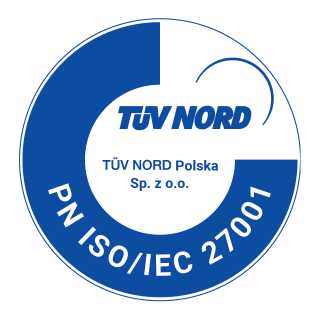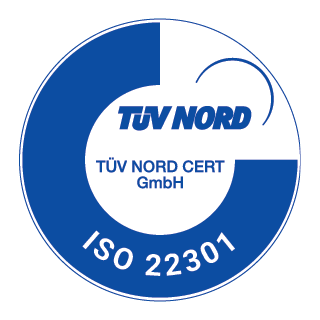AWS DevOps Infrastructure for Premium Video Service
Using AWS services and Ansible-based deployment automation scripts to build an efficiently automated environment for a video platform and ensure short time-to-market


Forming a DevOps team requires bringing together a group of experts with complementary skillsets. Hire a complete DevOps team that can handle the DevOps project, from strategy to infrastructure automation.

With DevOps Assessment we create a roadmap to visualize the desired DevOps transformation state and identify the steps to build a secure and efficient cloud operating culture for your teams.
Leverage our DevOps implementation blueprints based on the Five Pillars of AWS Well-Architected framework and best practices to architect a perfect technological solution to suit your business needs.
Automate infrastructure and cloud configuration management to deliver greater system confidence, less risk, and more time for your team. We can help you to decide what is the right tool for your infrastructure automation (Terraform, Ansible, CloudFormation, etc).
A continuous delivery pipeline is essential to accelerated deploy cycles. Our DevOps engineers will set up and configure a continuous integration and deployment pipeline with a high-performance continuous testing suite aligned with your software development processes.
Unlock the full potential of the DevOps approach. Our DevOps consultants are experienced in software development, cloud computing, and data security.
We have DevOps experts at competitive rates who are ready to work on your DevOps project to speed up your successful DevOps journey.
Well executed Agile software development methodology helps us to speed up strategic planning and successful DevOps implementation.
Our DevOps experts utilize industry-leading infrastructure management services, infrastructure monitoring, and infrastructure automation tools.
By implementing ISO 27001 and other certifications, we ensure that our software development services are secure, reliable, and compliant with the highest industry standards.





You can trust that your data is safe and secure with our ISO 27001 certification and best practices in security and data protection.
You get piece-of-mind with our QA processes that adhere to the highest standards for delivering enterprise-grade software products.
You can count on us to quickly adjust to changes in your project needs and provide engineering talent with the required skills.
We partner with entrepreneurs, business and technology leaders to bring their innovative software-driven products, processes, and business ventures to life.











Using AWS services and Ansible-based deployment automation scripts to build an efficiently automated environment for a video platform and ensure short time-to-market

Deploying interim devops engineers to augment the client in-house team and ensure continuous devops infrastructure support as well as permanent staff onboarding.

Using AWS and cloud machine learning services to build solution enabling SEO solutions provider to deliver search engine optimization results at lower costs and scale their SEO service business



It's extremely convenient to outsource individual experts or even entire teams to IT companies. They are not only qualified but also equipped with the necessary technology. All you need to do is communicate the specifics of your project and collaborate throughout the process.
At SoftKraft we provide DevOps consulting services. Prior to beginning work, we gather the DevOps project requirements and agree on the desired workflow. Once the team is assembled, we present CVs, invite you to a final interview, and seamlessly integrate them into your ongoing project. As a result, you can complete your work without having to recruit experts.
When employing DevOps engineers, it is critical to clearly define the job obligations and distinguish between requirements and preferences. Don't write job descriptions like unicorns! Some companies need a DevOps engineer that is fluent in a specific language, while others want a DevOps who is fluent in cloud technologies like AWS or Azure. The first step is to define the position's responsibilities and qualifications as needed:
While every organization's needs are unique, many recruiters and hiring managers look for certain skills in DevOps engineer candidates. Knowing which skills and qualifications are required and which are preferred can assist you in selecting the best candidates.
A well-rounded set of DevOps skills and competencies sets apart successful teams from those that fail. Every team must be proficient in all 12 DASA competencies. Everyone must be ‘competent' in DevOps ideas and practices. No one needs to be a ‘expert' in all areas, as long as the team covers all of them.
DevOps engineers definition of "success" should always factor in DevOps Research and Assessment (DORA) metrics:
In addition to these metrics specified by DORA, a well-rounded set of DevOps soft skills and competencies sets apart successful teams from those that fail:
There are three types of DevOps agency services:
1. DevOps as a Service - DevOps launch consulting
DevOps as a Service is a software delivery model that facilitates cooperation between the development team and the operations team of an organization. DevOps consulting companies implement DevOps tools that cover cloud computing, continuous deployment, and infrastructure automation. The principal objective is implementing effective release management practices.
2. Infrastructure Automation DevOps project
Infrastructure automation has a crucial role in eliminating manual errors while reducing dependency on humans to improve cloud security and infrastructure management. Moreover, DevOps consulting brings infrastructure automation to the entire CI/CD pipeline, and therefore software development life cycle.
Top DevOps consulting companies automize each and every aspect of the infrastructure provisioning, including build, provisioning, automated tests, deployment, performance testing, and infrastructure monitoring.
3. End-to-end DevOps Culture implementation
DevOps consulting services can help you adopt DevOps Culture and bring innovation into software development and operations. DevOps consulting companies address cultural issues around collaboration and support and coach teams whose roles and responsibilities are affected by the DevOps transformation.